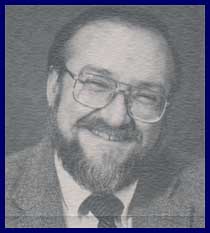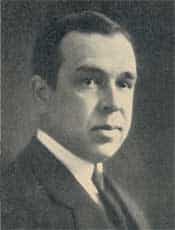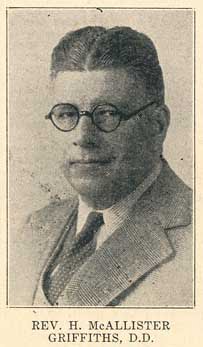“Westminster Theological Seminary: Its Purpose and Plan” was delivered by the Rev. Dr. J. Gresham Machen at the first convocation address at the Seminary on September 25, 1929. Dr. Machen’s address was subsequently published on the pages of The Presbyterian, in its October 10, 1929 issue (pages 6-9) and later reprinted in What Is Christianity?, edited by Ned B. Stonehouse (Eerdmans, 1951). The most recent reprint of this address appears on pages 187-194 of J. Gresham Machen: Selected Shorter Writings, edited by D.G. Hart (P&R, 2004):—
 Westminster Theological Seminary, which opens its doors today, will hardly be attended by those who seek the plaudits of the world or the plaudits of a worldly church. It can offer for the present no magnificent buildings, no long-established standing in the ecclesiastical or academic world. Why, then, does it open its doors; why does it appeal to the support of Christian men?
Westminster Theological Seminary, which opens its doors today, will hardly be attended by those who seek the plaudits of the world or the plaudits of a worldly church. It can offer for the present no magnificent buildings, no long-established standing in the ecclesiastical or academic world. Why, then, does it open its doors; why does it appeal to the support of Christian men?
The answer is plain. Our new institution is devoted to an unpopular cause; it is devoted to the service of One who is despised and rejected by the world and increasingly belittled by the visible church, the majestic Lord and Savior who is presented to us in the Word of God. From Him men are turning away one by one. His sayings are too hard, His deeds of power too strange, His atoning death too great an offense to human pride. But to Him, despite all, we hold. No Christ of our own imaginings can ever take His place for us, no mystic Christ whom we seek merely in the hidden depths of our own souls. From all such we turn away ever anew to the blessed written Word and say to the Christ there set forth, the Christ with whom then we have living communion: “Lord, to whom shall we go? Thou hast the words of eternal life.”
The Bible, then, which testifies of Christ, is the center and core of that with which Westminster Seminary has to do. Very different is the attitude of most theological institutions today. Most seminaries, with greater or lesser clearness and consistency, regard not the Bible alone, or the Bible in any unique sense, but the general phenomenon of religion as being the subject matter of their course. It is the duty of the theological student, they maintain, to observe various types of religious experience, attested by the Bible considered as a religious classic, but attested also by the religious conditions that prevail today, in order to arrive by a process of comparison at that type of religious experience which is best suited to the needs of the modern man. We believe, on the contrary, that God has been pleased to reveal himself to man and to redeem man once for all from the guilt and power of sin. The record of that revelation and that redemption is contained in the Holy Scriptures, and it is with the Holy Scriptures, and not merely with the human phenomenon of religion, that candidates for the ministry should learn to deal.
There is nothing narrow about such a curriculum; many and varied are the types of intellectual activity that it requires. When you say that God has revealed Himself to man, you must in the first place believe that God is and that the God who is is One who can reveal Himself, no blind world force, but a living Person. there we have one great division of the theological course. “Philosophical apologetics” or “theism,” it is called. But has this God, who might reveal Himself, actually done so in the way recorded in the Scriptures of the Old and New Testaments? In other words, is Christianity true? That question, we think, should not be evaded; and what is more, it need not be evaded by any Christian man. To be a Christian is, we think, a truly reasonable thing; Christianity flourishes not in obscurantist darkness, where objections are ignored, but in the full light of day.
But if the Bible contains a record of revelation and redemption, what in detail does the Bible say? In order to answer that question, it is not sufficient to be a philosopher; by being a philosopher you may perhaps determine, or think you can determine, what the Bible ought to say. But if you are to tell what the Bible does say, you must be able to read the Bible for yourself. And you cannot read the Bible for yourself unless you know the languages in which it was written. We may sometimes be tempted to wish that the Holy Spirit had given us the Word of God in a language better suited to our particular race, in a language that we could easily understand; but in His mysterious wisdom He gave it to us in Hebrew and in Greek. Hence if we want to know the Scriptures, to the study of Greek and Hebrew we must go. I am not sure that it will be ill for our souls. It is poor consecration indeed that is discouraged by a little earnest work, and sad is it for the church if it has only ministers whose preparation for their special calling is of the customary superficial kind.
J. Gresham Machen “Westminster Theological Seminary: It’s Purpose and Plan,”The Presbyterian 99 (October 10, 1929): 6-9.




